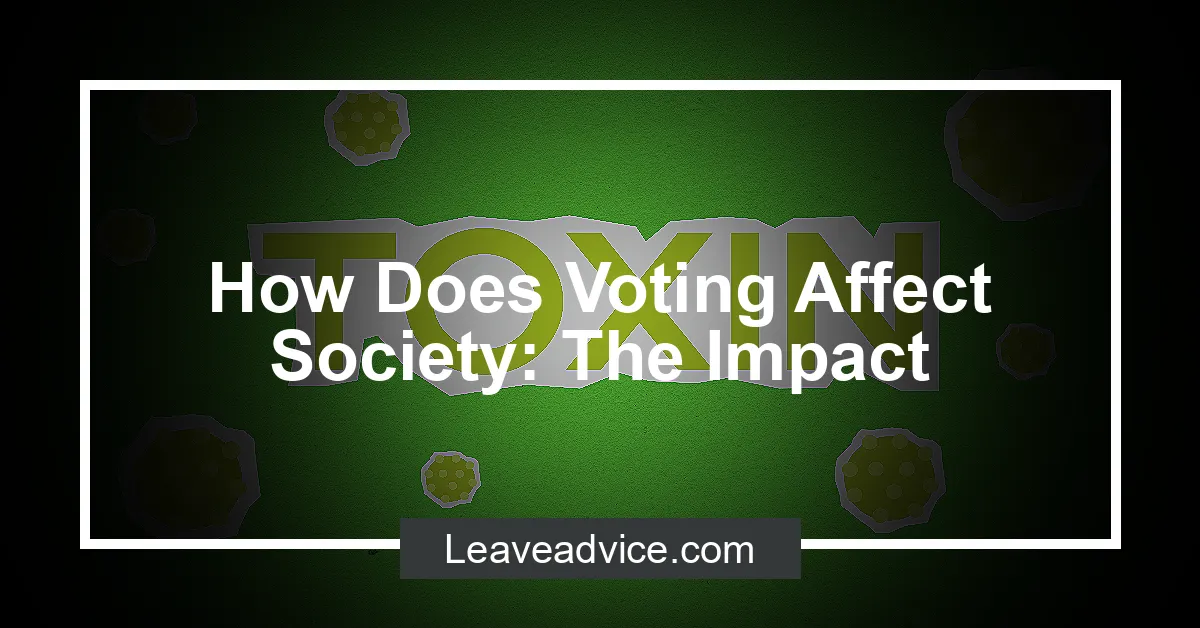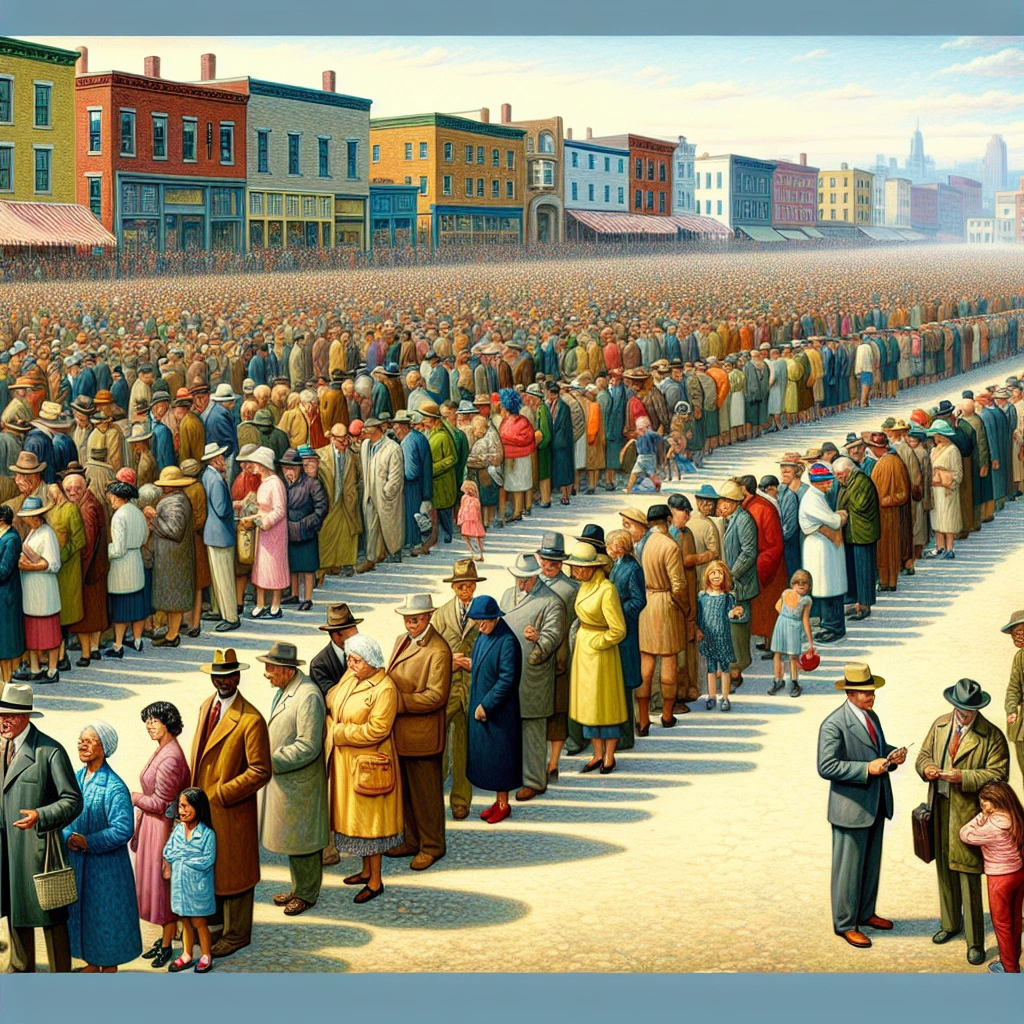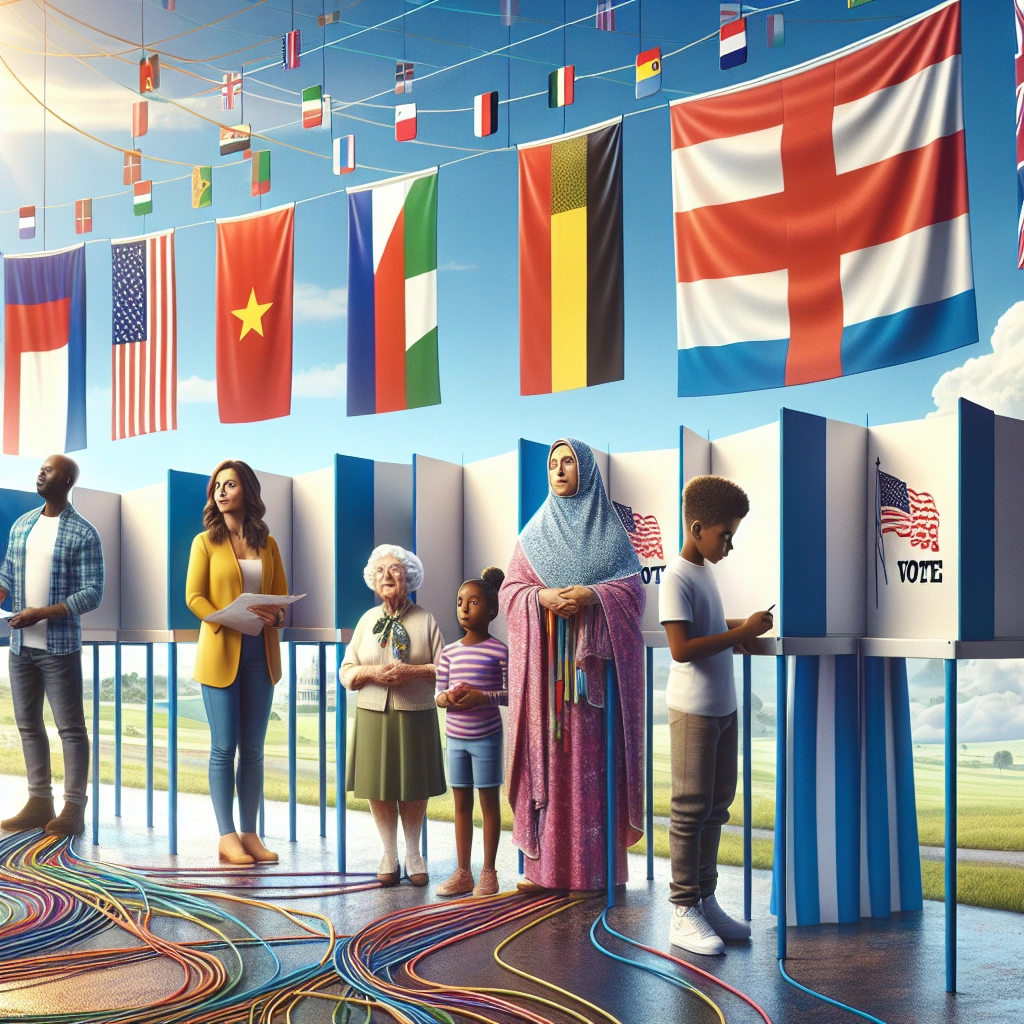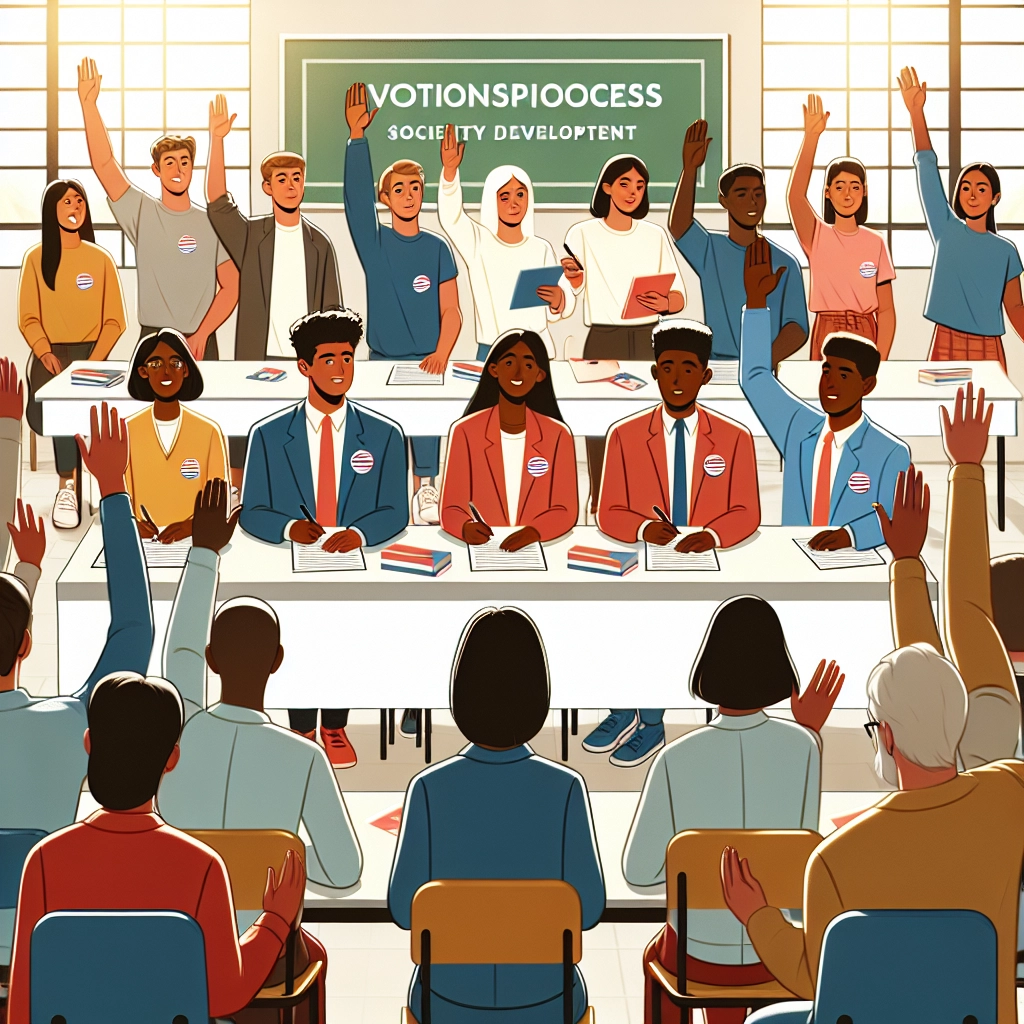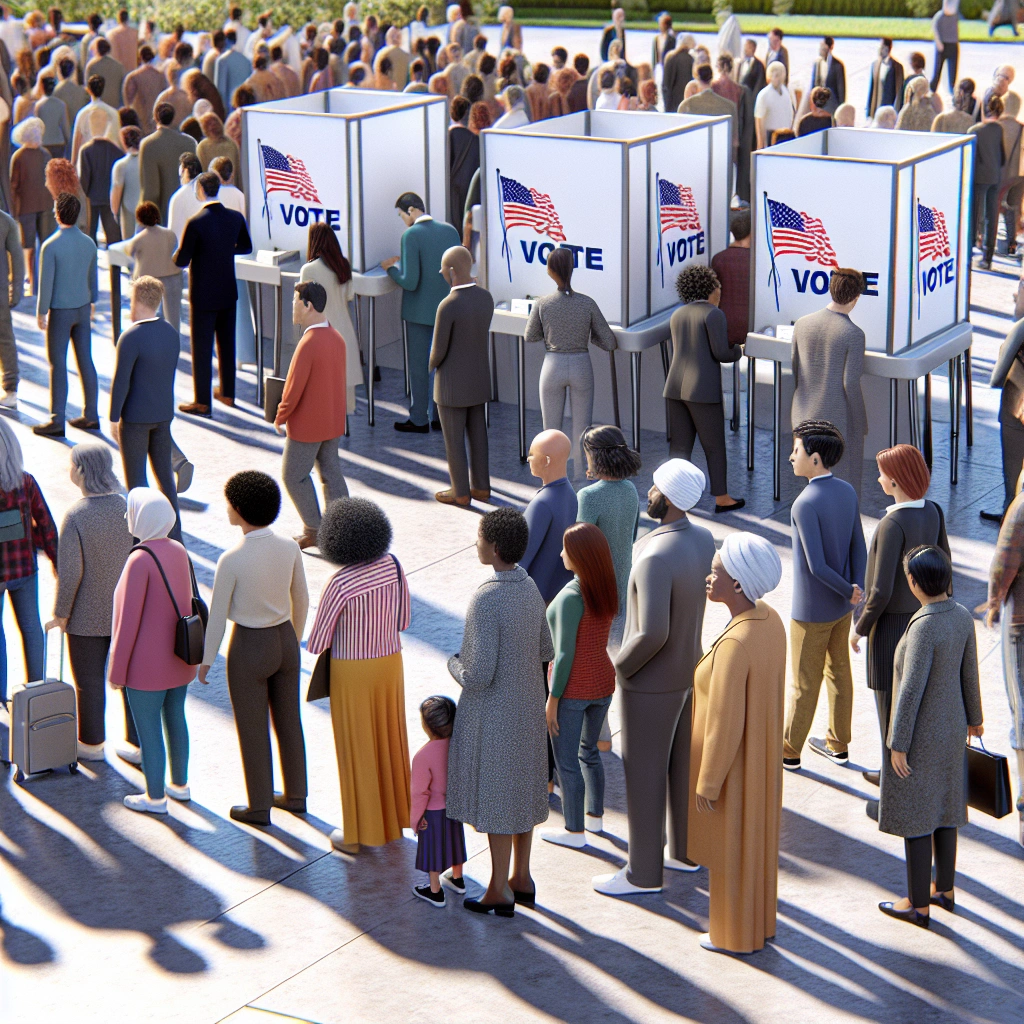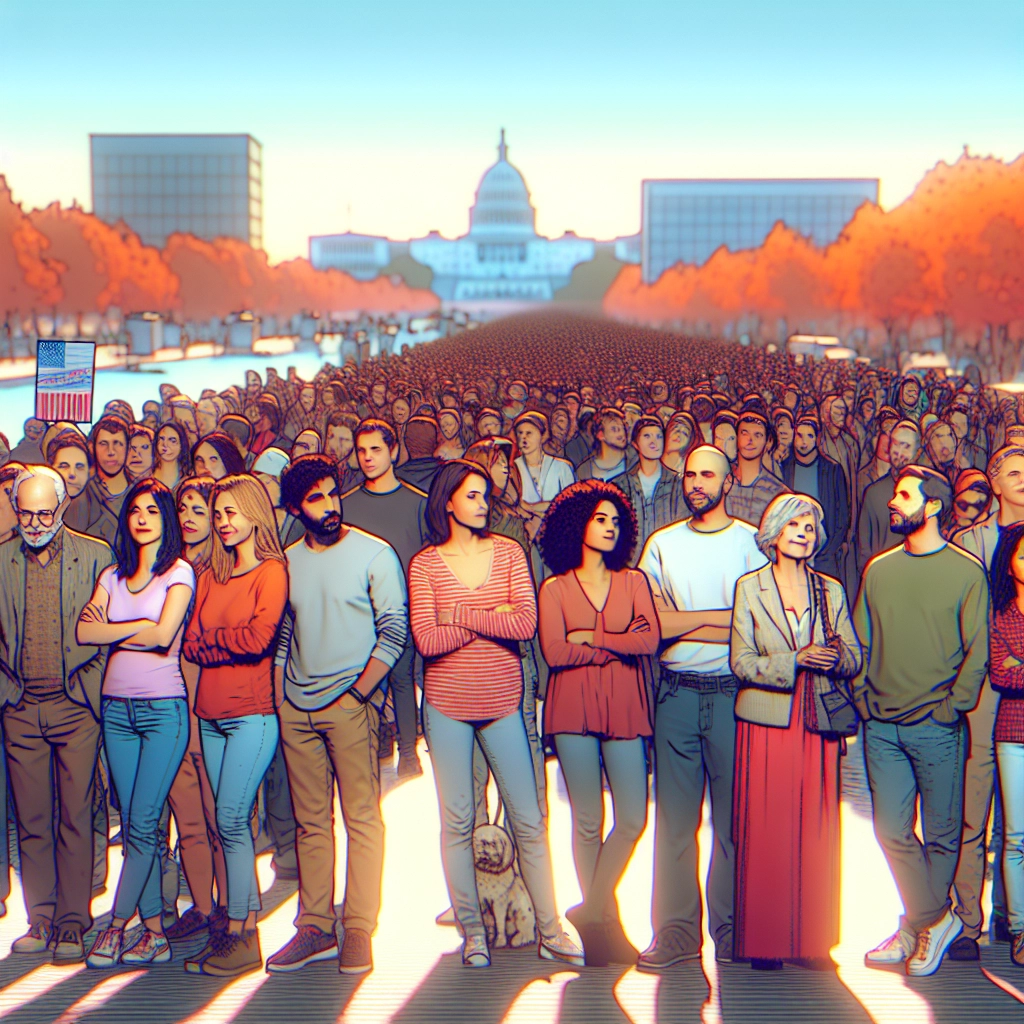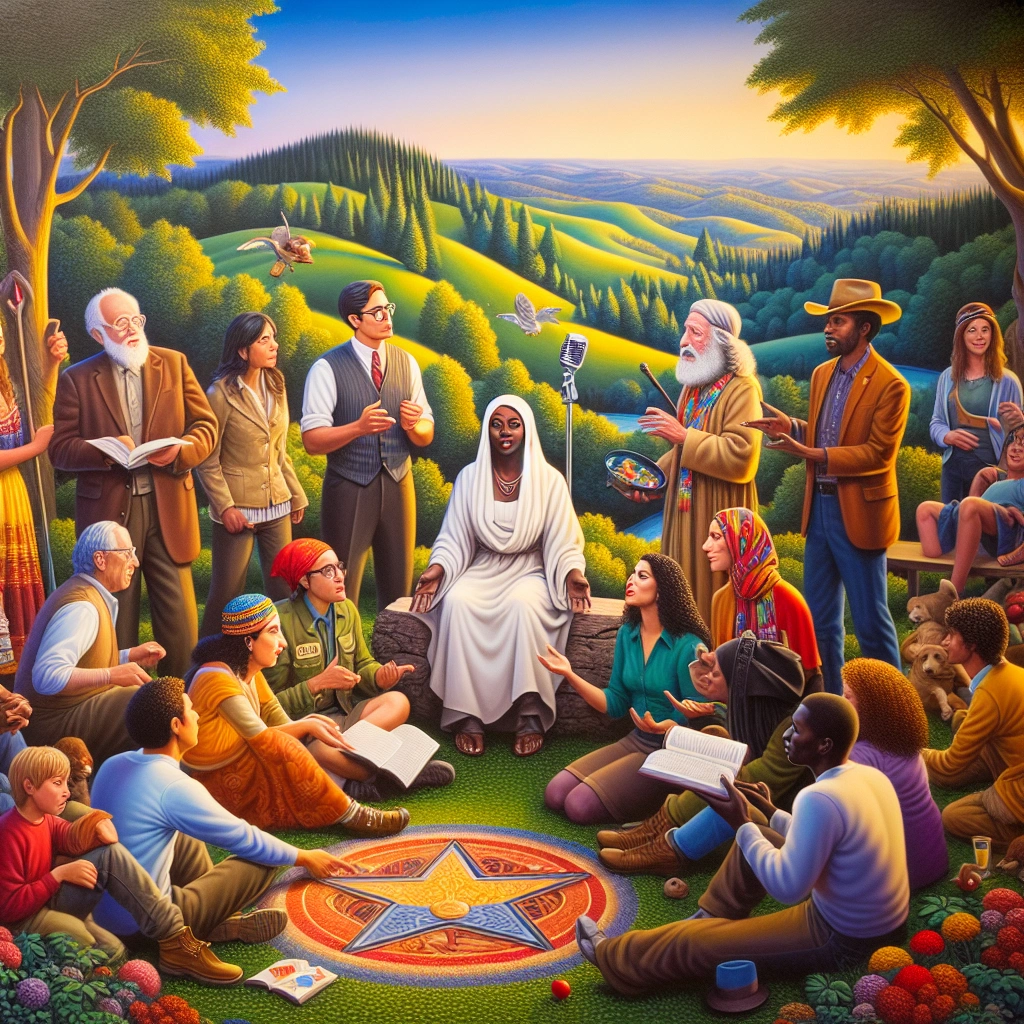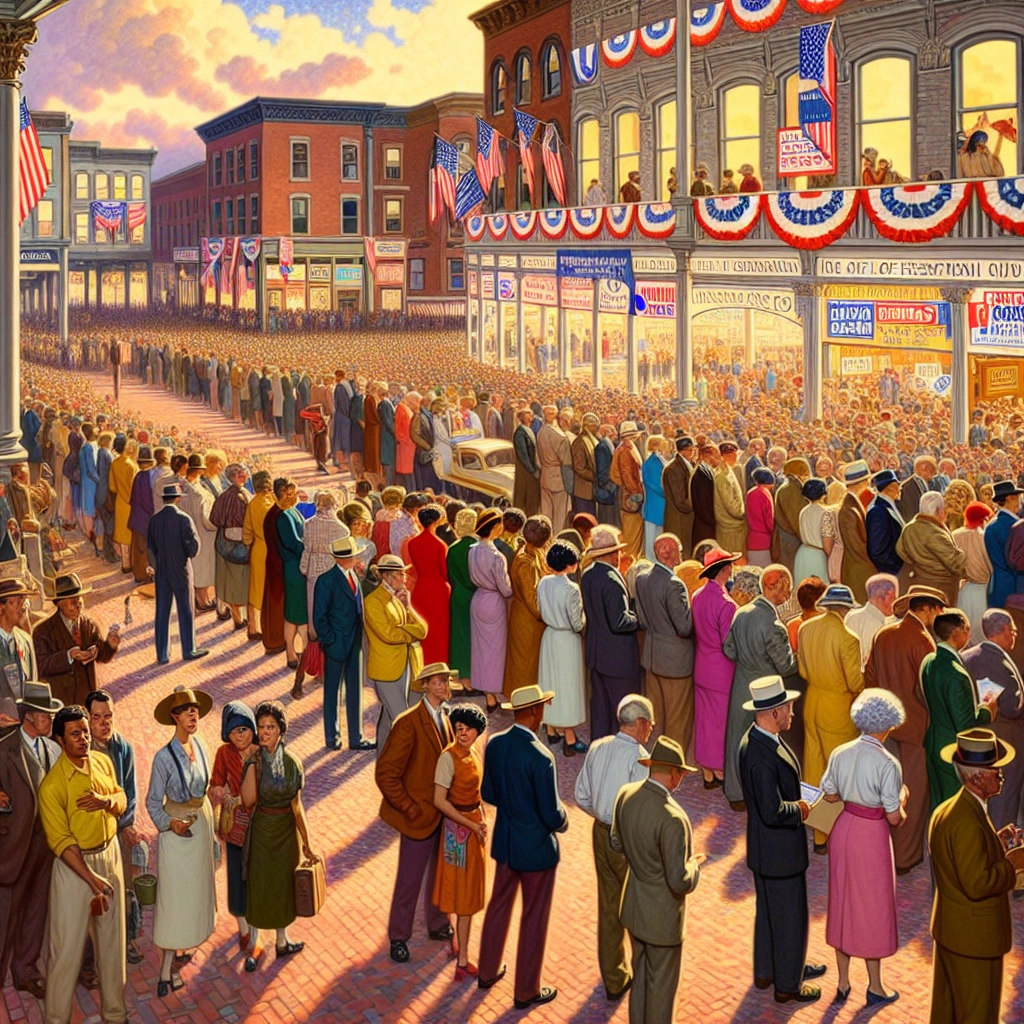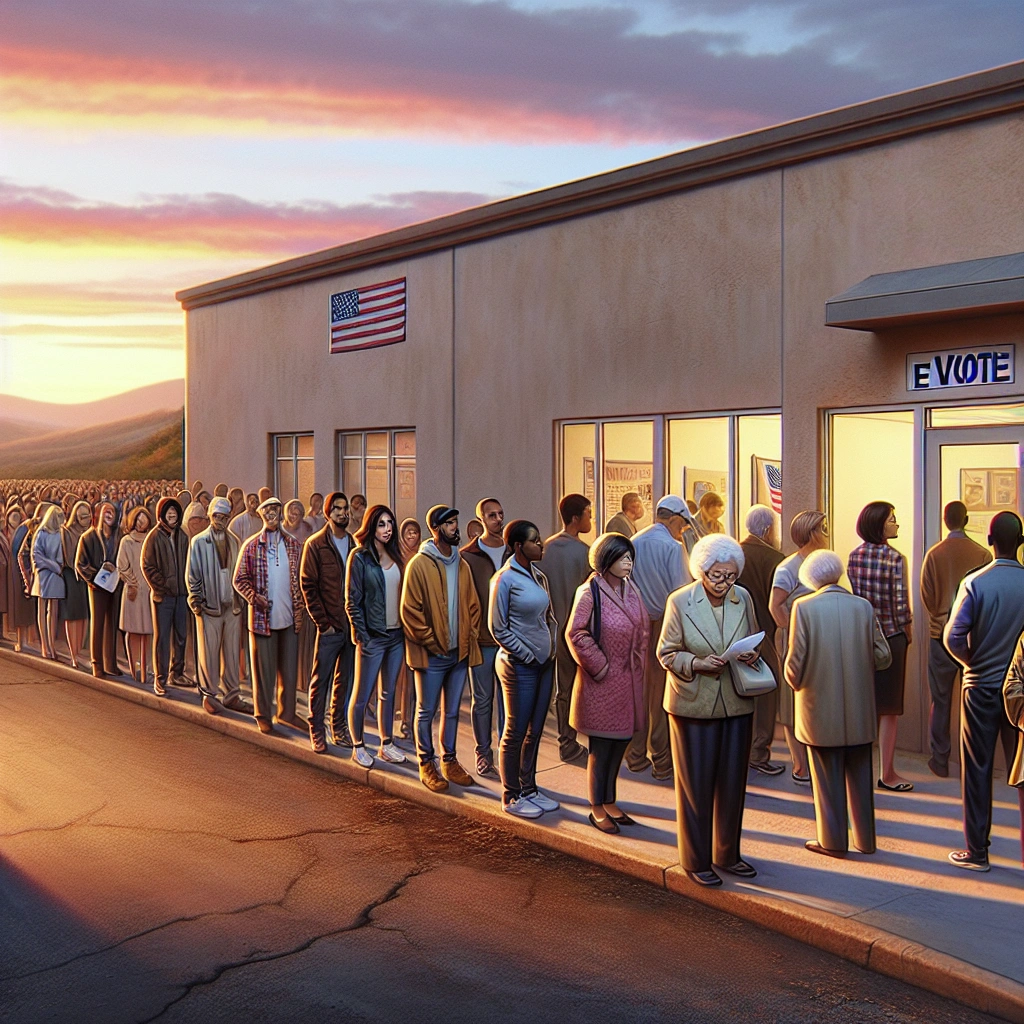How Does Voting Affect Society: The Impact


Voting is important in society because it gives citizens the power to create positive change for their community and determine a better quality of life for themselves and their families. It is a civic duty that empowers people and communities, and every vote matters.
Low voter turnout can have consequences, such as a decrease in voter engagement and the potential for a negative impact on election outcomes.
Voting affects society by shaping the leadership and policies that govern the community. When citizens vote, they have the opportunity to elect officials who represent their values and interests, and make decisions that affect the welfare of the society as a whole.
Additionally, voting serves as a means of expressing one’s voice and contributing to the democratic process, leading to a more inclusive and representative society.
Low voter turnout can result in a lack of diverse perspectives and decreased trust in the democratic system. When a significant portion of the population does not participate in voting, it can lead to underrepresentation and a disconnect between the government and the people.
This can have far-reaching implications for the functioning of society and the overall well-being of its members.
Check out this Youtube video: “How does voting affect society?” This informative video explores the impact of voting on health policy, social justice, and more.
The Power of Voting
The ability of voting to shape the government
Voting plays a crucial role in shaping government leadership by allowing citizens to express their preferences and elect representatives who align with their values and vision for the country. Through the power of voting, individuals can directly influence the composition of legislative bodies, the executive administration, and other government entities. This process ultimately determines the direction and priorities of the government, reflecting the collective choices of the electorate.
The impact of voting on policy decisions
The impact of voting goes beyond the election of public officials; it significantly influences policy decisions at local, state, and national levels. Elected representatives, accountable to the electorate, must consider the priorities and preferences of their constituents when making policy decisions. The collective voice of voters guides policymakers in formulating and implementing laws and regulations that align with the overall welfare and interests of society. Indeed, voting serves as a powerful tool for citizens to actively participate in shaping the policies that directly impact their lives.
| Aspect of Voting | Influence on Society |
|---|---|
| Shaping Government | Broad representation aligning with public will |
| Policy Impact | Reflecting citizens’ priorities in decision-making |
The power of voting is unequivocal in shaping the government and steering policy decisions, creating a direct link between the electorate and the governance of society.
Political Participation and Engagement
How voting encourages civic engagement
Voting plays a crucial role in encouraging civic engagement as it allows individuals to actively participate in the decision-making process of their communities and country. By exercising their right to vote, people become more involved in the political landscape, leading to heightened awareness of social issues and a stronger sense of responsibility towards their society.
The role of voting in promoting political awareness and activism
Voting serves as a catalyst for promoting political awareness and activism by empowering citizens to voice their opinions and effect change through democratic means. When individuals vote, they become more conscious of political developments, policies, and the impact of their choices.
This awareness fuels political activism, leading to increased advocacy for societal reforms and the protection of civil rights.
Representation and Diversity in Governance
The influence of voting on diversity in elected officials can significantly impact the composition of government bodies. When citizens exercise their right to vote, they have the power to elect representatives from diverse backgrounds, including race, gender, and ethnicity.
This process leads to a more inclusive and representative government that mirrors the diversity within society, ensuring that the voices of all communities are heard.
The importance of representation in government for marginalized communities cannot be understated. When individuals from marginalized communities are elected into government positions, they bring forward unique perspectives that address the specific needs and concerns of their communities.
This representation fosters greater trust in the government and enables the development of policies that support the advancement and empowerment of marginalized groups, ultimately leading to a more equitable and inclusive society.
Impact on Social and Economic Policies
Voting has a significant impact on social welfare programs as it allows citizens to express their preferences for policies supporting healthcare, education, and social assistance. The outcome of elections determines the allocation of resources to these programs, shaping the well-being of individuals and communities.
The connection between voting and economic policies is profound. Elections determine the leadership responsible for economic decision-making, including taxation, trade agreements, and labor regulations.
The policies implemented based on election outcomes directly influence job creation, income distribution, and overall economic stability.
| Social Welfare Programs | Economic Policies |
|---|---|
| Healthcare | Taxation |
| Education | Trade Agreements |
| Social Assistance | Labor Regulations |
Voting and Social Change
The role of voting in driving social reforms
Voting plays a crucial role in driving social reforms by giving citizens the power to influence and shape the direction of their society. When individuals exercise their right to vote, they directly contribute to the selection of leaders and policies that align with their values and priorities.
This ultimately leads to the implementation of reforms that address social injustices, promote equality, and drive positive change in areas such as healthcare, education, and civil rights.
Examples of historical social changes influenced by voting
Historical social changes influenced by voting include the Civil Rights Act of 1964 in the United States, where the collective voice of citizens, expressed through voting, led to the end of segregation and discrimination based on race, color, religion, sex, or national origin. Another noteworthy example is the Women’s Suffrage Movement, where the voting rights gained by women paved the way for significant societal changes, including advancements in gender equality and increased representation in political decision-making processes.
Accountability and Transparency
How voting holds leaders accountable
Voting holds leaders accountable by giving citizens the power to choose their representatives. When leaders know they are subject to re-election based on their performance, they are more inclined to act in the best interests of their constituents.
This accountability ensures that leaders remain responsive to the needs and concerns of the citizens they represent.
The relationship between voting and transparency in government actions
Voting is interlinked with transparency in government actions as it empowers the public to hold leaders accountable and demand transparency. When citizens have the power to vote, they can insist on transparent governance and are more likely to scrutinize the actions of their elected officials.
As a result, the connection between voting and transparency creates a system of checks and balances, fostering an environment where government actions are open and accountable to the people.
Building Trust and Unity
How voting fosters trust in the political system
Voting fosters trust in the political system by providing citizens with a voice in decision-making. When individuals actively participate in the electoral process, they feel represented and heard, leading to a stronger belief in the integrity of the system.
For example, in the aftermath of the 2020 presidential election, the surge in voter turnout demonstrated a renewed faith in the democratic process, showcasing how widespread participation can restore trust.
How voting can promote unity in a diverse society
Voting can promote unity in a diverse society by serving as a unifying force that transcends cultural differences. Through the act of voting, individuals from varied backgrounds come together to express their collective will and shape the future.
This shared civic responsibility creates a sense of common purpose and mutual respect, fostering unity amidst diversity. Additionally, elections provide an opportunity for diverse voices to be represented, promoting inclusivity and solidarity within the broader community.
Impact on International Relations
How voting can influence global perceptions of a society
Voting outcomes can significantly influence how the global community views a society. The democratic process and the results of elections can shape the perception of a country’s stability, governance, and values on the international stage.
This perception, in turn, impacts foreign relations, trade partnerships, and diplomatic interactions with other nations.
Examples of international impacts of voting outcomes
One notable example is the impact of the 2020 US presidential election on international relations. The change in administration led to shifts in foreign policy, trade agreements, and climate accords, affecting global perceptions of the United States.
Similarly, the Brexit referendum in the United Kingdom had far-reaching implications for trade dynamics and diplomatic relationships, altering how other nations engage with the UK.
Education and Awareness
The role of voting in promoting political education
Voting plays a crucial role in promoting political education by encouraging individuals to stay informed about political candidates, their policies, and the issues at stake. When citizens engage in the voting process, they are prompted to research and educate themselves about the candidates’ platforms and the potential implications of their decisions.
This active participation fosters a deeper understanding of the political landscape, encouraging citizens to take a more active interest in governance and policymaking.
How voting contributes to an informed citizenry
Voting contributes to an informed citizenry by motivating individuals to stay updated on current events, understand the significance of their vote, and comprehend the impact of their choices on society. It encourages citizens to critically analyze various sources of information, helping them distinguish between biased and impartial sources.
Additionally, engaging in the voting process prompts discussions on policy matters, fostering a more informed and aware citizenry. Through active participation in voting, individuals become more cognizant of societal issues, leading to a better-informed populace that actively engages in civic responsibilities.
Access and Equity in Voting
The impact of voting accessibility on society
Voting accessibility plays a crucial role in shaping society by ensuring that all individuals, regardless of their background or abilities, can participate in the democratic process. When voting is accessible to everyone, it fosters a more inclusive and representative democracy, where diverse voices and perspectives contribute to decision-making.
For example, providing wheelchair-accessible voting booths and voting equipment for people who are blind or visually impaired enhances the overall societal impact of voting.
Polling places that are accessible and accommodate individuals with disabilities are essential for promoting societal inclusivity. By addressing physical and technological barriers through accessible polling places and voting machines, society benefits from increased engagement and representation among individuals with disabilities.
This inclusivity enhances the overall social fabric and ensures that no one is left behind in the democratic process.
Addressing issues of equity in voting rights
Equity in voting rights is crucial for fostering a fair and just society. Voting accessibility laws, such as voter ID requirements, hold significant implications for equity in voting rights.
By providing equal opportunities for all individuals to exercise their right to vote, society can actively combat voter suppression and ensure that every citizen’s voice is heard.
Addressing barriers such as language access, voter roll purges, and polling place closures/consolidations is essential for promoting equity in voting rights. By eliminating these barriers, society can work towards creating a more equitable and inclusive electoral process, where every individual has an equal opportunity to participate in shaping the future of the nation.
| Barriers to Voting | Impact on Equity in Voting Rights |
|---|---|
| Voter ID requirements | Impacts equitable voting opportunities |
| Language access barriers | Hinders equitable participation |
| Voter roll purges | Disproportionate impact on marginalized communities |
| Polling place closures/consolidations | Undermines equitable voting access |
Civic Responsibility and Values
The connection between voting and civic responsibility
Voting is the cornerstone of civic responsibility. When we cast our vote, we actively participate in shaping the future of our society, demonstrating our commitment to the well-being of our community and country.
By exercising our right to vote, we contribute to the functioning and development of a democratic system. This action reflects our dedication to upholding the values of democracy and actively engaging in the decision-making process.
The link between voting and societal values
The act of voting is directly linked to societal values as it reflects the importance placed on civic engagement and collective responsibility. Through voting, individuals have the opportunity to uphold and promote societal values such as equality, justice, and representation.
Voting allows citizens to align their personal beliefs with the values they wish to see prevail in their society, ensuring that their voices are heard and their opinions are considered in the shaping of societal norms and policies.
Mobilization and Empowerment
How voting empowers individuals and communities
Voting empowers individuals and communities by giving them a voice in shaping the future of their society. It allows citizens to participate in the decision-making process, influencing policies and initiatives that directly impact their lives. Additionally, through the act of voting, individuals can express their beliefs and support for causes that are important to them, thereby contributing to a sense of empowerment and civic engagement within their communities.
The role of voting in mobilizing collective action
Voting plays a crucial role in mobilizing collective action by uniting individuals with a common purpose and vision for societal change. When people exercise their right to vote, they collectively demonstrate their willingness to drive progress and address pressing issues within their communities. This collective action sends a powerful message to policymakers and authorities, urging them to take action on critical matters that have been advocated for through the democratic process.
| Key Points |
|---|
| Voting Gives Voice to Individuals and Communities |
| Empowers Citizens to Shape Society’s Future |
| Strengthens Civic Engagement and Unity in Communities |
| Mobilizes Collective Action for Societal Progress |
Counterarguments and Criticisms
Addressing criticisms of the impact of voting on society
There are some criticisms regarding the impact of voting on society, with some individuals arguing that their votes don’t matter in the grand scheme of things. However, it’s important to address this misconception by highlighting that there have been more than a dozen races over the last two decades determined by a single vote or ending in a tie, demonstrating the tangible impact of individual votes.
Additionally, there’s a misconception that everyone has an equal opportunity to vote. While the US Constitution prohibits states from denying the right to vote based on race and gender, not all citizens are guaranteed the right to vote or have an equal opportunity to do so.
This highlights the need for ongoing efforts to ensure equitable access to voting for all eligible citizens, debunking the notion of universal voter equality.
Despite claims of voter fraud, analyses have shown that instances of voter fraud related to ballots sent by mail or placed in drop boxes are extremely rare. This debunks the myth that voter fraud is a significant problem in the US and emphasizes the importance of separating fact from fiction when evaluating the impact of voting on society.
Historical Perspectives on Voting
Voting has played a pivotal role in shaping societies throughout history. The ancient Athenian democracy provides a compelling historical example of how voting shaped society, with citizens participating in decision-making through direct democratic processes.
This early form of voting laid the groundwork for the modern democratic systems we see today, impacting societal structures and governance.
Evolution of voting rights and its impact on societies
The evolution of voting rights has had a profound impact on societies globally. For instance, the suffrage movement in the late 19th and early 20th centuries led to the expansion of voting rights for women in several countries, empowering them to participate in shaping their societies through the political process.
Additionally, landmark legislations such as the Voting Rights Act of 1965 in the United States have significantly influenced societal dynamics by addressing voter suppression and increasing electoral participation.
| Impact of Voting Rights Evolution |
|---|
| Enhanced political representation |
| Strengthened democratic values |
| Increased social inclusivity |
This evolution has contributed to enhanced political representation, strengthened democratic values, and increased social inclusivity, ultimately shaping the fabric of societies worldwide.
The Current State of Voting and Society
Trends in voting behavior and their impact on society
| Trends in Voting Behavior | Impact on Society |
|---|---|
| Younger voters, Black voters, and urban residents tend to support Democratic candidates while older, White, and rural voters lean towards Republicans. | This division in voter demographics contributes to the societal polarization and highlights the need for bridging the gap between different groups of individuals. It’s crucial to understand the underlying reasons behind these voting trends to address societal divisions effectively. |
The relevance of voting in modern societies
| Voter Turnout and Influence | Importance of Voting Rights |
|---|---|
| There are significant disparities in voter participation, with White, older, wealthier, and better-educated individuals exerting more influence than younger and less privileged groups. | Protecting and promoting voting rights is vital for ensuring a fair and representative democratic process. It is essential for individuals to recognize the impact of their votes on shaping the values and policies that govern society. |
Recommended Amazon Products for Promoting Civic Engagement Through Voting
Here’s a curated list of products that can help you promote civic engagement and participation through voting. These recommendations are based on their relevance and potential impact on the voting process.
Book: “The Fight to Vote” by Michael Waldman
This book provides historical perspectives on voting rights, their impact on societies, and the evolving landscape of voting in modern societies. The in-depth analysis offered in this book can help individuals understand the significance of their voting rights and the role of voting in shaping societies.
Link to “The Fight to Vote” on Amazon


Voting Rights Poster
A visually appealing and informative poster on voting rights and the history of voting can serve as a valuable educational tool. It can contribute to raising awareness about the importance of voting and the impact it has on society.
Link to Voting Rights Poster on Amazon


Civics Flash Cards
Interactive flash cards that cover key concepts related to voting, civic responsibility, and the electoral process can be a fun and effective way to educate individuals, especially students, about the significance of their role in the democratic process.
Link to Civics Flash Cards on Amazon


Voting-themed T-Shirts
Wearing clothing that promotes the message of voting and civic engagement can help spread the importance of voting in a stylish and trendy manner. T-shirts with creative and impactful designs can serve as conversation starters about the significance of participating in the electoral process.
Link to Voting-themed T-Shirts on Amazon


“I Voted” Stickers
Simple yet powerful, “I Voted” stickers can serve as a visual representation of an individual’s civic participation in voting. Distributing these stickers can encourage others to take part in the electoral process, promoting a sense of unity and pride in active civic engagement.
Link to “I Voted” Stickers on Amazon


Top Recommended Product for Promoting Civic Engagement Through Voting
If you’re looking for the best solution to promote civic engagement through voting, we highly recommend the book “The Fight to Vote” by Michael Waldman (https://www.amazon.com/s?k=The+Fight+to+Vote+Michael+Waldman). This meticulously researched book provides a comprehensive look at the history and significance of voting rights, making it an ideal resource for understanding the impact of voting on society and promoting active civic participation.


Here’s a table comparing the pros and cons of each recommended product:
| Product | Pros | Cons |
|---|---|---|
| “The Fight to Vote” by Michael Waldman | Detailed historical insights, educational resource | Limited interactivity |
| Voting Rights Poster | Informative visuals, educational tool | Size limitations for display |
| Civics Flash Cards | Interactive learning tool, educational content | Limited target audience (students) |
| Voting-themed T-Shirts | Fashionable advocacy, creative designs | Limited impact beyond visual reminder |
| “I Voted” Stickers | Symbolic representation, encourages participation | Limited educational value |
The book “The Fight to Vote” stands out as the top recommendation due to its in-depth coverage of voting rights and their impact on society, making it an excellent resource for promoting civic engagement and awareness through voting.
Conclusion
Voting affects society by allowing individuals to have a say in the decisions that impact their lives. It gives people the opportunity to choose leaders and policies that align with their values and beliefs.
This active participation in the democratic process helps to ensure that the voices of the people are heard and considered in shaping the direction of the society.
Furthermore, voting has the power to bring about social change and progress within a society. By exercising their right to vote, citizens can influence the outcome of important issues, such as education, healthcare, and civil rights.
This collective action can lead to the implementation of policies and laws that promote equality, justice, and overall improvement in the quality of life for all members of the society.
Moreover, voting fosters a sense of community and civic responsibility among the people. When individuals engage in the electoral process, they are more likely to be invested in the well-being of their society and take an active role in addressing its challenges.
This sense of civic duty and unity can lead to a more cohesive and inclusive society, where everyone works together for the betterment of the community as a whole.

